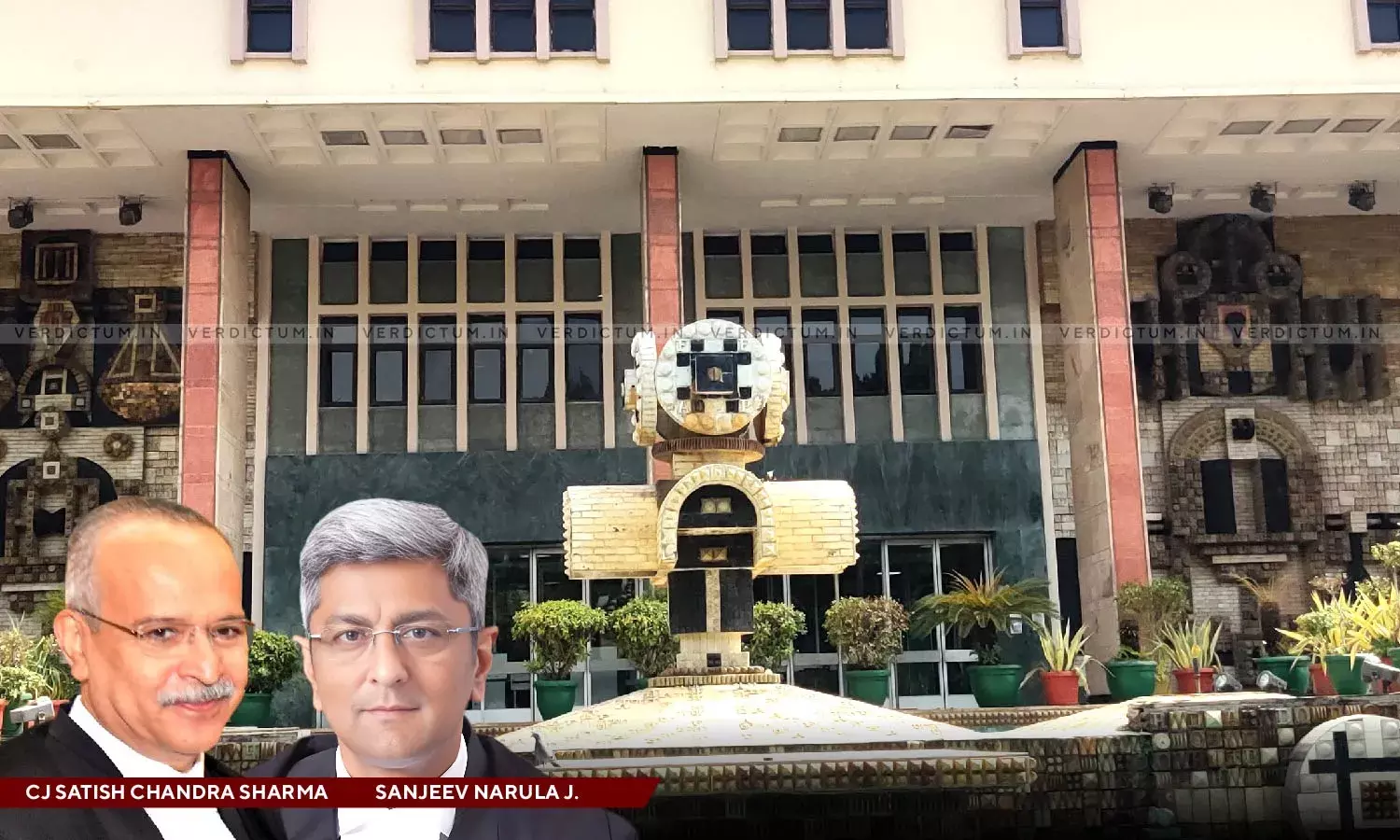5-Year Law Course May Require Different Yardsticks For Selection: UGC Informs Delhi HC, Opposes Plea Against DU’s Decision To Admit Students Through CLAT-UG & Not CUET

The University Grants Commission (UGC) informed the Delhi High Court on Tuesday that a five-year law course is a professional degree that may require different yardsticks for selection of students for admission. The UGC has opposed the plea filed in the High Court challenging Delhi University's decision to admit students based on their score in CLAT-UG and not CUET.
The High Court has directed the Chairman of the University Grants Commission (UGC) to file an affidavit within three days, explicitly stating whether CUET is mandatory for admissions to the Undergraduate Five-Year Law Degree Course in all Central Universities.
A Division Bench of Chief Justice Satish Chandra Sharma and Justice Sanjeev Narula was perusing the affidavit which was called upon to be filed in the previous hearing. The UGC in the counter affidavit defended Delhi University's CLAT-UG 2023 admission criteria for Five-Year Law Course. The Court reproduced para 8 of the affidavit which stated,
“8. As per the Central Universities Act, 2009, the University has the power “to determine standards of admission to the University, which may include examination, evaluation or any other method of testing”. Further, “admissions of students shall be made on merit, either through Common Entrance Tests conducted individually by the University or in combination with other Universities, or on the basis of marks obtained in the qualifying examination in such courses where the intake of students is small ”.
The petitioner a law student at Campus Law Centre in Delhi University, had argued that Delhi University's admission criteria, based solely on CLAT-UG 2023 results, were arbitrary and violated the right to equality under Article 14 and the right to education under Article 21 of the Constitution. He sought admission to the five-year integrated law courses through CUET-UG 2023, introduced by the Union Ministry of Education for central universities' undergraduate programs.
The UGC affirmed that Delhi University can admit students to the Five-Year Law Degree Course through the CLAT Examination, with approval from the University's Academic Council and Executive Council.
However, a letter dated March 10, 2023 issued by the Joint Secretary, UGC, was brought to the Court's attention. The letter revealed that in the UGC's 566th meeting on February 23, 2023, it was resolved that CUET (Common University Entrance Test) would be mandatory for admission in all undergraduate programs in all Central Universities. Thus the Court added, “Let the Chairman of the UGC file an affidavit categorically stating CUET is mandatory for Under-Graduate Five Year Law Degree Course for all Central Universities in the matter of grant of admission or not.”
Additionally, the University was directed to submit an additional affidavit clarifying whether admissions for the Under-Graduate Five-Year Law Degree Course would be based on the CLAT Examination for the current year only or if the same pattern would continue in subsequent years.
It was emphasized that the University should make its stance clear on the mode of examination (CUET or CLAT) for the next Academic Year, even if the current approval is for one year only.
Advocate Nidhi Raman, representing the Central Government, was requested to inform ASGI Chetan Sharma to assist the Court.
The Delhi High Court had previously questioned Delhi University's decision to rely on CLAT-UG 2023 for admissions, noting that other central universities were using CUET UG 2023 introduced by the Ministry of Education.
The case is scheduled for the next hearing on September 18, 2023.
Cause Title: Prince Singh v. Faculty of Law University of Delhi & Ors.
Click here to read/download the Order


